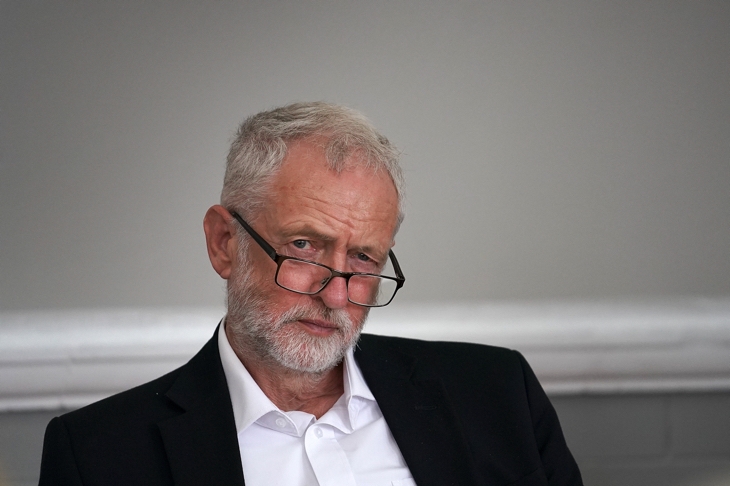Jeremy Corbyn didn’t pick the most obvious topic to lead on – or indeed mention – at Prime Minister’s Questions today. While the Tories are in deep discomfort on the Worboys case, the Labour leader chose instead to talk about something on which even he had to concede Theresa May has shown a fair bit of commitment over the years: mental health. It wasn’t until later in the session that the Ministry of Justice’s handling of the serial rapist’s case was raised at all.
But that said, this was one of Corbyn’s best Prime Minister’s Questions. Normally when he attacks on health, he often meanders around general topics without really prosecuting a particular point or indeed picking up May on the points that she has made. Today was different: the Labour leader had six detailed questions on mental health which focused specifically on staffing shortages and underfunding of mental health and which brought in human experience too. He was even sufficiently agile to respond to claims that the Prime Minister had made about funding: when she claimed that it was a Conservative government that had introduced parity of esteem for mental and physical health, Corbyn hit back that parity was in fact legislated for as a result of a Labour amendment to a bill – and that it had not yet been reached.
There was also a shift in his tone. Normally, Corbyn shouts his way through Prime Minister’s questions, with Tory MPs shouting back. Today he was so calm that he was largely heard in respectful quiet.
This calm and detailed approach worked well to make the case for more money for mental health in the NHS in the week that the Prime Minister had committed to a cash boost and a long-term settlement. I suspect that for Corbyn it also worked in that it prevented the session from becoming too much of a political knockabout, which given the rows in his party over anti-semitism and Russia is wise to avoid. Indeed, you could see that May had come to the Chamber hoping to attack Labour, but that she couldn’t see the way to do so once Corbyn started speaking about mental health. By the end of the questions, she was trying to link young people’s mental health and online bullying, but in a way that seemed to suggest that the bullying that children and adolescents experience online is a result of what’s going on in the Labour Party. She pursued this argument in a rather inarticulate fashion, almost as though she was wondering why she had set off down this path in the first place.
Prime Minister’s Questions is just one session in the political week, but it can set a party up for the next few days, or leave it demoralised. Given the severity of the problems in the Labour Party at the moment, I suspect today’s session won’t have made much difference to morale, but what it will have done, unusually, is help to make the case for a policy to change.







Comments